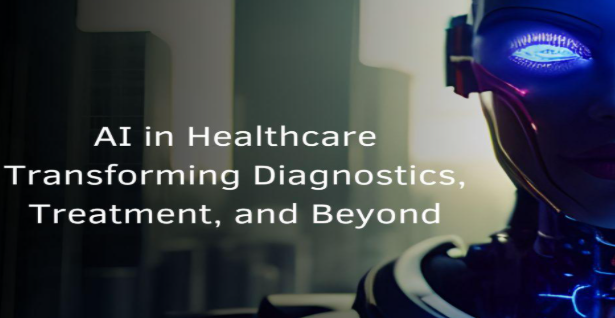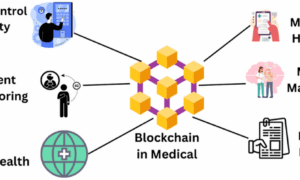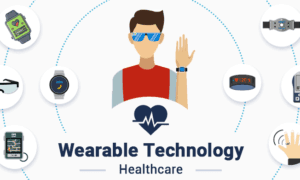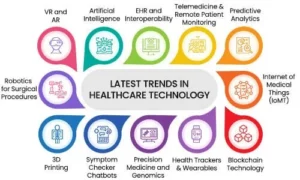Artificial intelligence (AI) is revolutionizing industries, and healthcare is at the forefront, leveraging this technology to deliver transformative patient care and operational efficiency. Atul Ramesh Bharmal’s exploration into AI-powered clinical decision support systems illuminates how innovation reshapes medical practices to enhance patient care and streamline operations. This concise overview highlights groundbreaking advancements, offering insights into how AI transforms healthcare delivery.
Harnessing AI for Diagnostics: Uncovering What Humans Might Miss
Accuracy in diagnosis is crucial to effective treatment. AI-powered systems leverage vast datasets, learning algorithms, and predictive analytics to aid clinicians in diagnosing complex conditions. These systems not only identify subtle patterns in medical imaging or lab results but also provide insights that might be overlooked by human analysis. By reducing diagnostic errors, AI paves the way for earlier interventions and improved patient outcomes.
Personalized Care: Tailoring Treatments for Better Outcomes
The integration of AI enables a shift from generalized treatments to highly personalized care. AI algorithms craft tailored treatment plans by analyzing a patient’s genetic makeup, medical history, and real-time health data. This level of customization enhances the effectiveness of therapies and minimizes adverse reactions, fostering a patient-centric approach to medicine.
Optimizing Resources: Making Every Dollar and Minute Count
One of AI’s most practical contributions is its ability to streamline resource allocation. Hospitals and clinics often struggle with managing limited resources, from staff to medical supplies. AI systems analyze usage patterns, predict demand, and recommend optimal allocation strategies, ensuring that resources are available when and where they are needed most.
Enhancing Clinical Decision-Making
AI-powered decision support systems have become invaluable tools for healthcare providers, offering a reliable second opinion during critical decision-making. These advanced systems can analyze vast volumes of medical literature, patient histories, and clinical guidelines in real-time, delivering evidence-based recommendations tailored to individual cases. Ensuring adherence to up-to-date medical standards and protocols, they help healthcare professionals navigate complex diagnoses and treatment plans with enhanced accuracy and confidence. Ultimately, these systems foster better patient outcomes by reducing errors, improving efficiency, and supporting medical practitioners in delivering the highest standard of care.
Accelerating Drug Discovery
AI’s influence reaches far beyond patient care, significantly transforming pharmaceutical research. Advanced AI algorithms analyze vast biological datasets, identify patterns, and simulate molecular interactions with remarkable precision. This technological innovation streamlines the identification of viable drug candidates, enabling researchers to pinpoint potential treatments more efficiently. By reducing the time and financial investments required for drug discovery, AI facilitates faster development cycles, bringing critical, life-saving medications to market more quickly. These advancements enhance research productivity and offer hope for addressing complex diseases and improving global healthcare outcomes.
Revolutionizing Telemedicine: Bringing Care to Every Corner
The rise of telemedicine has been significantly boosted by advancements in artificial intelligence, making healthcare more accessible and efficient. AI-powered virtual assistants enhance patient engagement by streamlining appointment scheduling, symptom analysis, and preliminary diagnoses. These tools ensure that patients, especially those in underserved or remote locations, receive timely medical attention without geographical constraints. By bridging the gap in healthcare access, AI-driven telemedicine contributes to a more inclusive and responsive healthcare system, empowering patients and providers to navigate care with greater ease and confidence.
Navigating the Challenges: Ethics and Collaboration in AI Healthcare
While the benefits of AI in healthcare are undeniable, challenges remain. Ethical concerns surrounding data privacy, algorithmic biases, and equitable access must be addressed to build trust and ensure fairness. Additionally, integrating AI systems into healthcare infrastructure demands robust collaboration between technologists and medical professionals. Leveraging AI offers opportunities for transformative progress—delivering more precise diagnostics, personalized treatments, and streamlined operations. As these technologies mature, they promise a future where healthcare is universally efficient, accessible, and inclusive.
In conclusion, the advancements explored by Atul Ramesh Bharmal underscore a pivotal shift in how healthcare is conceptualized and delivered. By integrating AI-powered systems into daily medical practices, healthcare providers can achieve unprecedented precision and efficiency. These innovations not only promise enhanced patient outcomes but also contribute to making quality healthcare accessible to a broader population. As the field continues to evolve, the transformative potential of AI remains a beacon for future advancements.

































